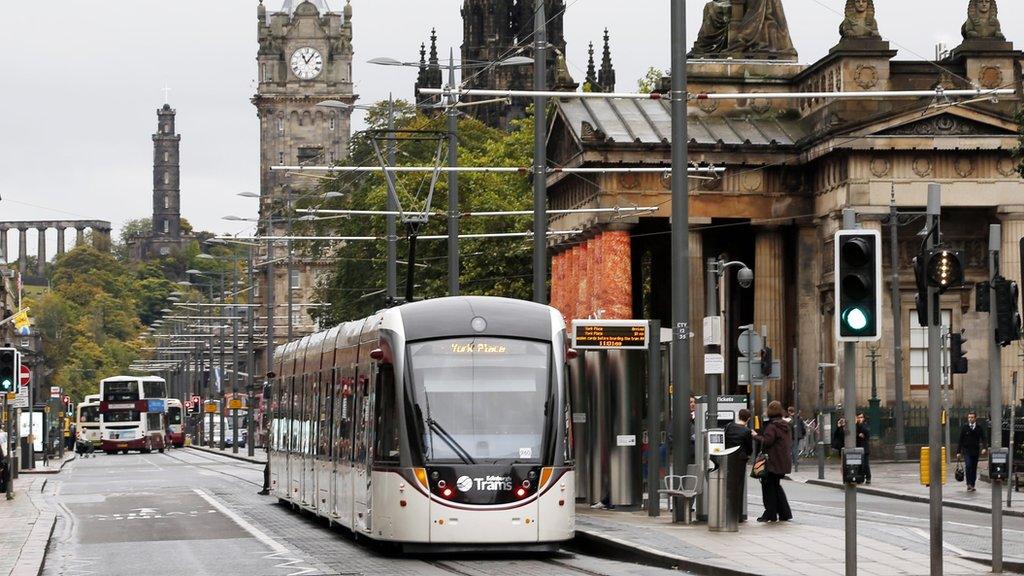Edinburgh Trams: Inquiry could lead to prosecutions
- Published

The inquiry into the Edinburgh trams fiasco could lead to criminal prosecutions, the judge chairing the investigation has said.
Lord Hardie said his inquiry must not rule on, and has no power to determine, a person's civil or criminal liability.
But he said: "that does not mean nobody will be prosecuted as a consequence of their involvement in the project".
The former Lord Advocate is preparing to take evidence from councillors and the public affected by the disruption.
He said the inquiry "is not merely an academic exercise" given City of Edinburgh Council's indications it may extend the line, and said public co-operation was vital to enable him to make recommendations about future projects.
Final bill
The trams were originally designed to run for 15 miles by 2011 at a cost of £375m, but a truncated nine-mile service opened in 2014 at a cost of £776m - with interest charges expected to push the final bill to about £1bn.
The inquiry will investigate the delays, cost overruns, redesigns, delivery, governance, management, contract oversight and the consequence of the failure to deliver the project in full, on time and within budget.
Lord Hardie said: "Any question of prosecution will ultimately be a matter for the Lord Advocate and Crown Office and Procurator Fiscal Service (COPFS), and their decision will depend upon the availability of evidence supporting such a decision.
"As far as I am aware, neither the Lord Advocate nor COPFS has determined that nobody will be prosecuted.
"Indeed, it might seem to be premature to express such a view without considering the terms of the inquiry report which will be written after the conclusion of the evidence sessions in public.
"Furthermore, any question of civil liability must be determined by an appropriate court, having jurisdiction to do so."
He said the inquiry is not prevented "from determining facts and making recommendations from which criminal and/or civil liability might be inferred", and could offer "criticism of an individual, including inferred criticism, during the course of proceedings".
- Published5 August 2016

- Published26 July 2016

- Published21 July 2016

- Published6 October 2015

- Published12 May 2015
